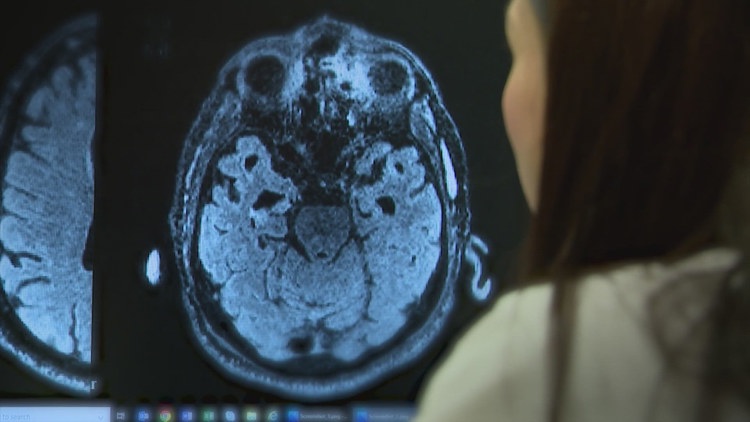Science
Texas Voters Face Decision on $3 Billion Dementia Research Fund

In the upcoming November 2023 elections, Texas voters will decide on Proposition 14, a measure that proposes a significant $3 billion investment to enhance research on dementia and Alzheimer’s disease. If approved, this funding could lead to groundbreaking discoveries and a transformative approach to addressing these conditions that affect millions of Texans and their families.
The initiative aims to establish a comprehensive framework for dementia research, enabling Texas to become a leader in the field. Advocates argue that investing in research is crucial, as the state faces a growing population of individuals diagnosed with dementia, projected to escalate in the coming years. According to the Alzheimer’s Association, over 400,000 Texans currently live with Alzheimer’s disease, and that number is expected to double by 2050.
Potential Impact on Research and Care
Proponents of Proposition 14 emphasize the potential for innovation within Texas laboratories. The funding would support not only research but also community resources and care initiatives. Dr. John Smith, a leading neurologist at a prominent Texas research institution, stated, “This investment could catalyze new therapies and treatments that currently do not exist. It is an opportunity to change the narrative around dementia.”
The proposed investment would allocate funds across various research programs, tapping into the expertise of Texas universities and medical centers. Additionally, the funding aims to foster partnerships between academia and the pharmaceutical industry, potentially accelerating the development of effective treatments.
Opponents of the measure raise concerns about the long-term fiscal implications and how the funds would be managed. They argue that the state should prioritize existing healthcare systems rather than introducing new funding initiatives. Critics like Jane Doe, a member of a local fiscal policy group, have expressed skepticism about the effectiveness of such large investments. “We must ensure that funds are used efficiently and transparently,” she mentioned in a recent public forum.
Public Sentiment and Future Directions
As the election date approaches, public opinion on Proposition 14 appears divided. Supporters have launched campaigns highlighting personal stories of families affected by dementia, aiming to rally voter support. Many hope that the measure will not only improve research outcomes but also raise awareness about the challenges faced by those living with dementia.
Local community events have emerged, facilitating discussions about the importance of dementia research and encouraging voter participation in the upcoming election. Advocates believe that a yes vote on Proposition 14 is a vote for hope, promising new avenues to improve the quality of life for individuals living with dementia and their caregivers.
The decision made by Texas voters in November will have significant implications, not just for the future of dementia research in the state but also for the national conversation surrounding Alzheimer’s disease. As the population ages, the urgency to find effective treatments becomes increasingly critical. With the potential infusion of $3 billion, Texas could play a pivotal role in reshaping how the state—and possibly the nation—addresses the challenges posed by dementia.
-

 Lifestyle3 months ago
Lifestyle3 months agoLibraries Challenge Rising E-Book Costs Amid Growing Demand
-

 Sports3 months ago
Sports3 months agoTyreek Hill Responds to Tua Tagovailoa’s Comments on Team Dynamics
-

 Sports3 months ago
Sports3 months agoLiverpool Secures Agreement to Sign Young Striker Will Wright
-

 Lifestyle3 months ago
Lifestyle3 months agoSave Your Split Tomatoes: Expert Tips for Gardeners
-

 Lifestyle3 months ago
Lifestyle3 months agoPrincess Beatrice’s Daughter Athena Joins Siblings at London Parade
-

 World3 months ago
World3 months agoWinter Storms Lash New South Wales with Snow, Flood Risks
-

 Science3 months ago
Science3 months agoTrump Administration Moves to Repeal Key Climate Regulation
-

 Business3 months ago
Business3 months agoSoFi Technologies Shares Slip 2% Following Insider Stock Sale
-

 Science2 months ago
Science2 months agoSan Francisco Hosts Unique Contest to Identify “Performative Males”
-

 Science3 months ago
Science3 months agoNew Tool Reveals Link Between Horse Coat Condition and Parasites
-

 Sports3 months ago
Sports3 months agoElon Musk Sculpture Travels From Utah to Yosemite National Park
-

 Science3 months ago
Science3 months agoNew Study Confirms Humans Transported Stonehenge Bluestones









